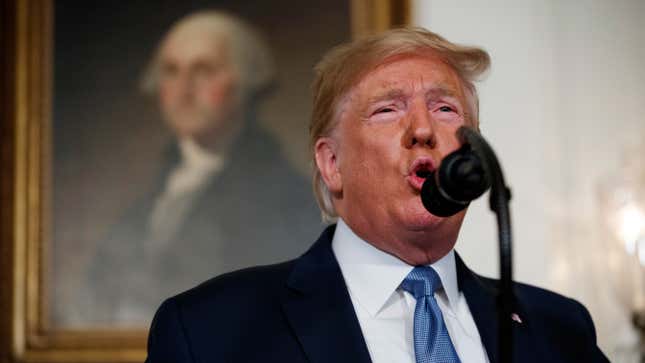

On the same day that a white supremacist shot and killed 21 people at a shopping center in El Paso, Texas and a gunman in Dayton, Ohio shot and killed nine people in the city’s busy downtown, Donald Trump crashed a wedding at his golf resort in Bedminster, New Jersey. He smiled and posed for photos with the bride and groom, offering his familiar thumbs up. (It’s almost too on the nose to note that he was greeted by chants of “USA! USA!”) The president’s only public response to the violence of the weekend had been a few tweets calling the shootings “terrible” and “tragic” along with the standard “thoughts and prayers.” Otherwise, his Twitter feed was his usual steady diet of self-aggrandizement.
On Monday morning, a few hours after he proposed coupling “strong background checks” with “desperately needed immigration reform”—the latter of which we know from Trump’s own words and policies means the sort of violent exclusions that the El Paso gunman also so keenly wanted—Trump gave a wooden and perfunctory speech in which he pretended to care about racism, a spectacle that would be laughable if the circumstances wren’t so tragic.
-

-

-

-

-

-

-

-

-

-

-

-

-

-

-

-

-

-

-

-

-

-

-

-

-

-

-

-

-

-

-

-

-

-

-

-

-

-

-

-








































